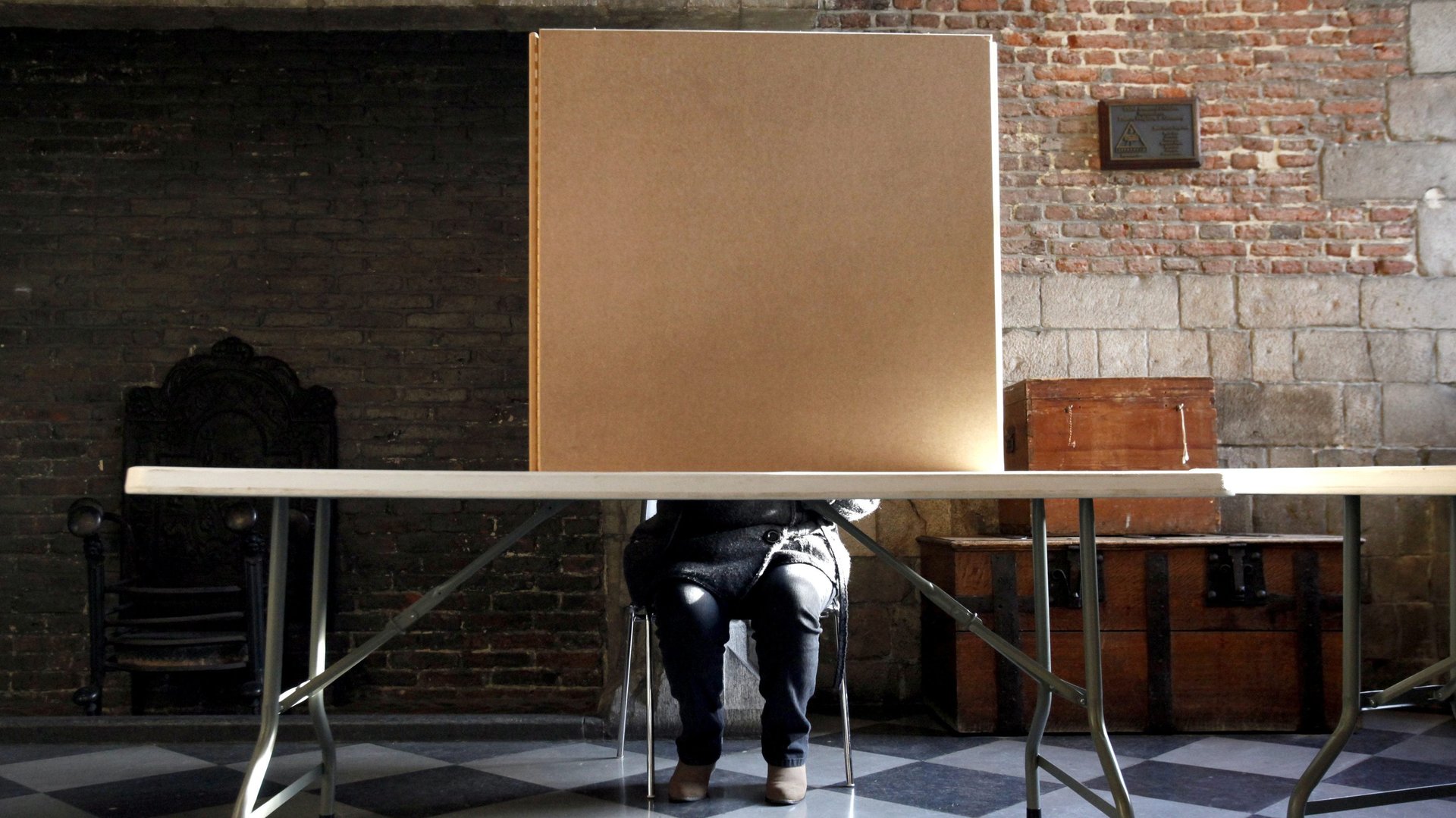Why are Belgians so much better at voting than everyone else?
Belgians are known for their waffles, fries, and castles. But there’s something else the country should be famous for: its impeccable voting record. A stunning 90% of registered voters cast a ballot in the country’s national elections last year, as well as in the last European Parliament elections in 2014.


Belgians are known for their waffles, fries, and castles. But there’s something else the country should be famous for: its impeccable voting record. A stunning 90% of registered voters cast a ballot in the country’s national elections last year, as well as in the last European Parliament elections in 2014.
That’s pretty remarkable, given that average voter turnout for European elections reached an all-time low of 43% in 2014, down from a high of 63% in 1979. For comparison, 61% of eligible voters took part in the 2016 US presidential election, while just 49% voted in the 2018 midterms—the highest voter turnout since 1914.
It’s so remarkable that, as the EU gears up for one of its most critical elections in history later this month, some are considering whether Belgium holds the key to reversing a steady increase in voter apathy in Europe. Its approach could “provide an example of democratic ideology and good practice to the world,” Anthoula Malkopoulou of the Center for European Policy Studies argues.
Here’s the catch: Voting in Belgium is compulsory. In 1893, a massive voter enfranchisement law mandated that all Belgian men aged 21 and older vote (women would have to wait another 55 years to be given the right). In 1989, the country extended the law to cover voting in European elections. Becoming the first country (pdf) in the world to make voting mandatory nationwide (pdf) has allowed Belgium to systematically outperform its EU neighbors in terms of voter turnout over the years.
Belgians who don’t vote can face penalties (pdf). Citizens receive a voting card two weeks before elections that states that they could be fined for not voting. Eligible, unexcused voters who don’t vote have to pay a fine of up to €10 ($11.15) the first time, and up to €25 ($27.88) the second time. If an unexcused voter fails to vote at least four times over 15 years, they are struck off the electoral register for 10 years. They also can’t receive any “nomination nor promotion nor distinction from any public authority” during those years. In a country where about 18% of citizens (pdf) work in the government sector, that’s a serious deterrent.
But, like many of the more than 20 countries worldwide with mandatory voting laws, Belgium rarely enforces the sanctions. No one has been sued or fined for failing to vote in more than 15 years. So why do people still turn out in droves for elections?
Around the world, countries with compulsory voting have higher voter turnout levels, especially when sanctions for abstention are enforced. Luxembourg, Greece, and Cyprus, the three other EU members with mandatory voting laws, also have voter turnout rates that outperform the EU average, even though enforcement there is even weaker than in Belgium.
Supporters of compulsory voting say it increases participation in elections, especially for marginalized groups that typically don’t vote. They say it prevents interest groups from paying people not to vote, gives more legitimacy to democratic institutions, and is cheaper and more effective than other methods of voter outreach.
But others believe that forcing citizens to vote goes against the very idea of democracy. They worry it fosters resentment against the political system, and encourages people to vote “randomly” or cast blank or null votes.
Belgians may show up to vote, but they’re not necessarily engaged in politics. The country on the whole scores low on political participation. Some, like Pilet, believe that over-emphasizing voting risks distracting people from other important forms of engagement, like activism, party membership, and community work. “Politics is being transformed, and more and more, you see interest among citizens for other forms of participation,” he says. “Citizenship should be about more than voting for parties every four years or every five years.”
Civic engagement can be encouraged in other ways. Sweden does not have compulsory voting. Yet 87% of its voting population turned out for parliamentary elections last year—in part because of the country’s investment in voter participation and flexible voting regulations (Sweden allows voters to return to a polling station and vote a second time if they’ve changed their mind, for example.)
Across the world, trust in democracy is declining. Investing in election turnout, whether through compulsory voting or intense voter engagement, could be critical in reversing the tide.